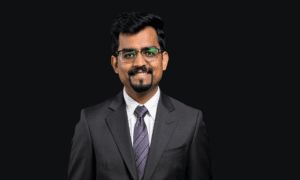Inteliumlaw stands out as a law firm delivering high-calibre business legal services to iGaming, crypto, IT, marketing, and investment companies navigating rapid regulatory change. Leading the firm is Elena Sadovskaya, a highly qualified lawyer whose decade of experience spans international tax, corporate law, and business structuring at global consulting firms like Ernst & Young. In this interview, Elena shares Inteliumlaw’s journey and how the firm’s future-proof advice supports businesses’ sustainable growth.
Please tell us your name, title/function, and a little more about yourself.
My name is Elena Sadovskaya, and I’m the Managing Partner at Inteliumlaw. I started practising law during my second year at university, representing clients in court and handling corporate matters. Driven by a passion for legal science, I have authored around 45 legal articles and been honoured with several prestigious legal accolades.
Before Inteliumlaw, I worked at a law firm with a focus on international business structuring and had a chance to lead my own legal practice. Today, I bring nearly 10 years of experience advising companies, with almost half of it spent as an international tax and legal consultant at Ernst & Young, one of the Big Four consulting firms.
Tell us about Inteliumlaw: team size, when/why it was founded, and what inspired your law firm to specialise in the crypto and iGaming sectors?
Inteliumlaw was born back in 2021 from a small circle of legal experts, though its origins date back to 2016. Back then, I joined Ernst & Young, spending close to 4 years advising international businesses of different sizes and investment funds on the structuring and implementation of their projects across multiple sectors. In 2019, I launched my own legal practice and built a dedicated legal team that developed deep insight into the industries under our advisory.
When the COVID-19 pandemic hit and most traditional markets crashed, these groups started seeking alternative investment opportunities. Seeing great potential in the igaming and crypto industries – which, as history shows, was a good bet – they started heavily investing. They turned to us for specialised legal counsel, and this marked the beginning of what evolved into Inteliumlaw in 2021.
This is how Inteliumlaw, now a law firm providing full-fledged support for IT, iGaming, software development, and crypto businesses, came into existence. Since then, we have focused on these areas of expertise, providing ongoing support for businesses at every stage. Today, we act as long-term partners, fully invested in clients’ success and delivering bespoke solutions that best align with their unique needs.
With Markets in Crypto-Assets (MiCA) regulation now fully entering into force, what has changed in your approach to advising crypto businesses? How does Inteliumlaw help companies during the transition period and startups looking to enter the European market?
In the modern environment, launching a crypto business has become a significant challenge. Previously, it was all about registering a company and drafting basic terms and conditions alongside AML policies to start. Following a MiCA introduction, the situation has changed: companies are now required to provide an extensive package of documents in accordance with the established standards, obtain formal technology certification from relevant bodies, and appoint a dedicated team to oversee AML/KYC compliance, among others.
Moreover, European regulators are tightening restrictions on reverse solicitation, the practice of registering a crypto business abroad (e.g., in Panama) and accepting EU clients only if they approach voluntarily. Under MiCA, this approach is no longer a reliable workaround: reverse solicitation is strictly limited, and most crypto-asset service providers must now obtain authorisation within the EU to serve its market. As a result, MiCA compliance has become essential for any business wishing to work with clients in the EU market.
These are just a few shifts since the regulation was introduced, and given the pace of ongoing updates, being compliant today doesn’t guarantee compliance tomorrow.
That’s why, at Inteliumlaw, we keep a hand on pulse and assist clients in navigating these shifts with actionable updates. Our team supports new and transitioning firms in obtaining the MiCA licence, helping them smoothly adapt to new regulatory requirements and submit documentation on time to become CASPs.
As MiCA regulation rolls out across EU member states, Inteliumlaw’s advice helps clients remain compliant and avoid enforcement regardless of where they are based.
Led by the US, Europe, and the UAE, governments worldwide create comprehensive regulations and fiscal incentives to foster a favourable environment for crypto firms and institutional adoption. Which countries does Inteliumlaw think are best positioned to dominate and become the crypto-friendly hubs in the next few years?
Well, I would say the United Arab Emirates (UAE) has the most potential to become the number 1 most sought-after destination. The projections indicate that the crypto industry may become the UAE’s second-largest economic sector within the next five years, while media outlets already refer to it as the “crypto capital of the world”.
Over the past few years, they have really done much to be regarded as such. From the creation of VARA as a dedicated crypto regulator to paving the way for decentralised organisations (DAOs) in Abu Dhabi, establishing digital assets-focused free zones like RAK, introducing a central bank-backed stablecoin, and offering tax benefits for businesses, the region emerges as a global benchmark of how to build a crypto-friendly ecosystem.
When it comes to Europe, Estonia, Malta, and Lithuania are likely to remain at the forefront, being among the best places to register a crypto company.
When talking about iGaming licensing, what are your go-to options for small startups: Anjouan, Curaçao, or Costa Rica? And for mature operators, do you recommend Malta, the Isle of Man, or Gibraltar?
At Inteliumlaw, our philosophy is that there are no two businesses alike. Each business model has a unique competitive advantage, a strength that sets it apart, be it a focus on a single market, a particular gaming vertical, or choosing crypto over fiat. Since there is no universal winning formula, the choice of a gaming licence is always made on a case-by-case basis to best fit the business model and goals.
Nevertheless, if I have to select the solution that ticks the most boxes, Anjouan is undoubtedly the most popular option for startups seeking a combination of regulatory compliance and a certain level of industry acceptance. In my experience, Curaçao is often too expensive for early-stage startups, while Costa Rica supports quick launch with crypto, if one wishes to sacrifice access to reputable banking and technology partners.
For mature operators, Malta and the Isle of Man have long been among the most reliable licensing routes. However, the Estonian licence should not be underestimated, given its competitive cost, balanced requirements, and the strong overall outcomes it delivers. For operators that have moved beyond the startup phase and are seeking reliable partners, these three licences represent the most effective entry points. Yet, Estonia currently stands out as the most cost-effective option compared to the other two.
This year, Nevis rolled out a new iGaming licensing framework, with the industry believing it could become the next Curacao. As many industry licensing experts highly praise Nevis, how do you rate its suitability for operators today? Does Inteliumlaw offer/recommend a Nevis licence for its clients as an alternative to Anjouan or Curacao?
Over time, Nevis is expected to gain more recognition from banking institutions and other industry stakeholders. With over 40 years of experience regulating financial services, this jurisdiction offers a robust local setup and holds a better reputation than Anjouan.
Considering this, give it time, and Nevis could turn into a viable alternative to Curacao, having strong momentum similar to Tobique in its early days and even greater long-term potential than Anjouan. In the end, much will depend on how long it will take for a licence to get recognised; the key question is how soon it can reach the level of the Curacao and other Tier-2 gaming licences.
Currently, Inteliumlaw frequently recommends the Nevis gaming licence after making sure it suits the client’s long-term goals. It comes at a far lower price than Curacao and doesn’t carry the same level of challenges. To maintain the licence in Curacao, companies are increasingly required to demonstrate higher levels of economic substance and establish a physical presence in the country, forcing firms to either appoint local representatives or relocate – a significant barrier for many. Moreover, with Curacao introducing stricter requirements and initiating enforcement actions on licence holders, businesses may seek to relocate to more favourable jurisdictions, which is where Nevis stands out.
The regulatory landscape for fintech, crypto, and iGaming is evolving rapidly, with industry firms seeing compliance as burdensome. How do you help clients transform compliance into a strategic advantage rather than a hurdle?
Our firm understands the struggle of businesses trying to achieve and maintain compliance at every stage of their journey. Hence, our legal counsel builds solid legal ground for clients to operate with confidence and remain competitive at the same time.
Companies in fintech, crypto, and iGaming frequently perceive compliance as a mere formality. The truth is: it is a powerful tool, a safeguard behind closed doors that protects business interests.
Comparing noncompliant and compliant firms, the first face unpredictable risks, while the second have full control of theirs. A robust compliance system enables taking calculated risks rather than unintentional ones. Without such a system in place, companies operate with their eyes closed: potentially serving restricted regions or facilitating money laundering. Unfortunately, in such cases, discovering these breaches often comes at the price of serious regulatory fines for non-compliance.
At the end of the day, legal counsel from Inteliumlaw helps companies maintain compliance and lay a solid, future-proof foundation for tomorrow’s success.
Inteliumlaw works with a diverse portfolio of clients. Could you share a success story where your tailored legal solutions made a measurable difference to a client’s growth or resilience?
Elena: Absolutely. One of the things we take pride in is building sustainable legal structures that not only support clients’ day-to-day operations but also set the foundation for their long-term growth. For instance, we have helped clients implement risk-mitigating models that allowed them to scale from early-stage ventures to well-recognised brands.
In several cases, we have successfully defended clients before regulators when other legal service providers had already failed and given up, safeguarding their licences and market position. Applying our expertise in restructuring, we have also protected significant assets, ensuring business continuity during challenging times.
Beyond that, our team has implemented more than 50 tax-efficient structures and supported multi-million-dollar transactions, enabling clients to preserve capital, optimise resources, and reinvest in growth. These outcomes are exactly why many of our clients see us not just as legal advisors but as long-term strategic partners in their success.
Tell us more about your plans for Inteliumlaw for 2026. What is your long-term vision?
In the years ahead, we anticipate the rise of new companies pushing the boundaries of innovation in fintech, crypto, IT, and iGaming. Each year brings a new, massive wave of startups to the market, many of which often struggle without much-needed legal counsel – and Inteliumlaw is committed to meeting that need with holistic, end-to-end business legal services.
Already, we actively broaden our portfolio of crypto and iGaming licences while expanding the range of jurisdictions for business incorporation to offer clients the most relevant and competitive structures. As regulations continue to advance, we expect the emergence of more licensing regimes in 2026 and aim to be among the first to thoughtfully evaluate such and advise firms accordingly.
When it comes to assisting companies with ongoing compliance, we closely monitor regulatory shifts to ensure our advice is always timely and relevant. In light of continuous changes, even in well-established jurisdictions such as Curaçao or in newly emerging regimes like the UAE, our lawyers stay ahead of the curve to provide well-informed guidance on adapting or relocating.
Ultimately, our long-term vision is to strengthen our expertise and proactively monitor regulatory trends and new regimes to provide the most effective legal solutions for businesses of all sizes.































